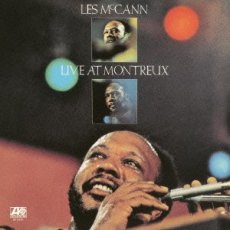
Daily Dose Of Jazz…
Les McCann was born on September 23, 1935 in Lexington, Kentucky. He first gained notoriety in the early Sixties with his trio while recording for Pacific Jazz Records and working with Ben Webster, Richard “Groove Holmes, Blue Mitchell, Stanley Turrentine, Joe Pass, the Jazz Crusaders, and the Gerald Wilson Orchestra.
In 1969, Atlantic Records released Swiss Movement recorded with saxophonist Eddie Harris at the Montreux Jazz Festival. The album featured trumpeter Benny Bailey and contained the tune “Compared To What” which took the album and the single to the top of the Billboard charts, bringing worldwide recognition to the musician even though it contained political criticism of the Vietnam War.
After the success of Swiss Movement the pianist began to emphasize his rough-hewn vocals more becoming an innovator in the soul jazz style, merging jazz with funk, soul and world rhythms; much of his early 1970s music prefigures the great Stevie Wonder albums of the decade. He was among the first jazz musicians to include electric piano, clavinet, and synthesizer in his music.
Les discovered Roberta Flack, obtained an audition that resulted in a recording contract with Atlantic Records and the 1969 release of her album First Take. In 1971, he and Harris were part of a group of soul, R&B, and rock performers that included Wilson Pickett, The Staple Singers, Santana and Ike & Tina Turner who flew to Accra, Ghana for a historic 14-hour concert before more than 100,000 Ghanaians.
He continued a long and moderately successful career for the next two decades until a stroke in the mid 1990s sidelined McCann for a while but in 2002 he released a new album Pump it Up. The soul jazz piano player and vocalist found success both in the jazz arena and as a crossover artist into R&B and soul. Pianist and vocalist Les McCann died from pneumonia in a Los Angeles hospital on December 29, 2023, at age 88.
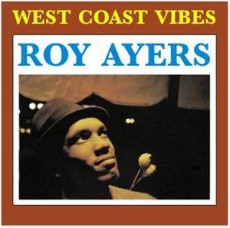
Daily Dose OF Jazz…
Roy Ayers was born on September 10, 1940 in Los Angeles, California and grew up in the epicenter of southern California Black music scene known as South Park, now called South Central. He received his first set of mallets at age five from Lionel Hampton thus leading him to the vibraphone.
He studied music attending Central Avenue area schools Wadsworth elementary, Nevins Middle and Thomas Jefferson High that also graduated Dexter Gordon. He became part of the West Coast jazz scene in the early ‘60s, played withCurtis Amy as well as Herbie Mann for four years and recorded his first album West Coast Vibes in 1963 and several albums for Atlantic Records as a post-bopper. It was during this period that he became exposed to new styles of music outside bebop.
The 70s saw the advent of jazz funk and Roy was there to help pioneer its rise. With highly successful soundtracks like “Coffy” Ayers went on to record “Mystic Voyage”, “Everybody Loves The Sunshine”, “Running Away” and a string of hits throughout the decade. By 1980 he had teamed with Fela Kuti releasing Afrobeat “Music of Many Colors, went on to produce Sylvia Striplin’s “Give Me Your Love”, and released several albums on the Ichiban label. He collaborated on the Stolen Moments: Red, Hot+ Cool project, turned his attention to house music, founded two record labels – Uno Melodic and Gold Mink, and currently is the feature of the documentary called the Roy Ayers Project.
Roy Ayers, vibraphonist, vocalist, keyboardist, producer, jazz, funk and soul composer has recorded over 50 albums during his long and prolific career and he continues to perform, record and tour.
More Posts: keyboard,vibraphone,vocal
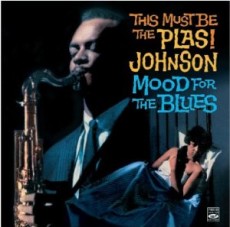
Daily Dose Of Jazz…
Plas John Johnson Jr. was born on July 21, 1931 in Donaldsonville, Louisiana. Along with his pianist brother Ray, he first recorded as the Johnson Brothers in New Orleans in the late 1940s. He then toured with R&B singer Charles Brown and after military service moved to Los Angeles and began session recordings as a full-time musician. There he backed artists such as B. B. King and Johnny Otis as well as scores of other R&B performers.
An early supporter was Maxwell Davis, who hired him to take over his own parts so that he could concentrate on producing sessions for the Modern record label. Recruited by Capitol Records in the mid-1950s, Johnson also played on innumerable records by Peggy Lee, Nat King Cole, Frank Sinatra and others.
For the next twenty years Plas remained a leading session player averaging two sessions a day and playing everything from movie soundtracks to rock and roll singles, by such artists as Ricky Nelson, Bobby Vee, the Beach Boys and a number of instrumental groups.
By 1963, Johnson soloed for the television series The Odd Couple’s theme, recorded Ella Fitzgerald’s Jerome Kern, Harold Arlen and Johnny Mercer Songbooks; and worked with Motown playing with the likes of Marvin Gaye and The Supremes.
In 1970, Johnson joined the studio band of the Merv Griffin Show while playing with a number of jazz and swing bands of the period. The soul-jazz and hard bop tenor saxophonist is probably most widely known for his solo on Henry Mancini’s “The Pink Panther Theme”. He continues to record and perform, particularly at jazz festivals.
More Posts: saxophone
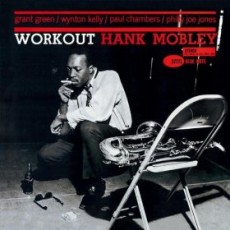
Daily Dose Of Jazz…
Henry (Hank) Mobley was born on July 7, 1930 in Eastman, Georgia but was raised in Elizabeth, New Jersey. Early in his career, he worked with Dizzy Gillespie and Max Roach, and then took part in one of the landmark hard bop sessions, alongside Art Blakey, Horace Silver, Doug Watkins and Kenny Dorham, resulting in the release of Horace Silver and the Jazz Messengers and the Jazz Messengers. When they split in ’56, Hank and Silver continued their collaboration in the 50s.
During the 1960s, he worked chiefly as a leader, recording over 20 albums for Blue Note Records between 1955 and 1970 and playing many of the most important hard bop players such as Grant Green, Freddie Hubbard, Sonny Clark, Wynton Kelly and Philly Joe Jones, along with a particularly productive partnership with Lee Morgan. He spent a brief time with Miles Davis in 1961 replacing John Coltrane.
Hank was a major voice on tenor saxophone, known for his melodic playing, is widely recognized as one of the great composers of originals in the hard-bop era, with interesting chord changes and room for soloists to stretch out.
He was forced to retire in the mid-1970s due to lung problems and although he worked two engagements at the Angry Squire in New York City in ‘85 and ‘86 in a quartet with Duke Jordan. He recorded as a leader for Blue Note, Prestige and Savoy record labels leaving history thirty-two albums and another fifty-six sitting in the sideman seat.
A few months later tenor saxophonist and composer Hank Mobley, who soared in the hard bop and soul jazz genres with his laid-back, subtle and melodic delivery, passed away from pneumonia on May 30, 1986.
More Posts: saxophone
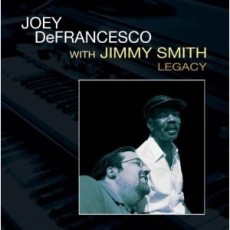
Daily Dose Of Jazz…
Joey DeFrancesco was born in Springfield, Pennsylvania on April 10, 1971 into a family of musicians – a multi-instrumentalist grandfather and Hammond B3 player father. Joey DeFrancesco started playing the piano at the age of four, switching to the B3 shortly after. By age six, he was sitting in on his father’s gigs; by ten playing out on his own and sitting in with organ legends like Jack McDuff and Richard “Groove” Holmes. He went to high school with bassist Christian McBride, where the two were often scolded for altering their big band charts.
At seventeen years old Miles Davis asked Joey to join his band, touring Europe and recording Amandla with Davis. He became well known in the 1990s, however, through his work with John McLaughlin’s trio Free Spirits. He has also played with jazz guitarists Pat Martino, Paul Bollenback, Jimmy Bruno, Dave Stryker, Danny Gatton as well as trumpet player Big Jim Henry and many others.
DeFrancesco’s career as a leader began with his first recordings on Columbia, and later with Muse, Big Mo, and HighNote. He listened to and learned from Jimmy Smith, ultimately paying homage with his 1999 release “The Champ”. In 2000 he recorded the album “Incredible!” with Jimmy and finished “Legacy” shortly before Smith’s passing in 2005. He has also paid tribute to Don Patterson with “Tribute to Don Patterson: The Philadelphia Connection” released in 2004.
Jazz organist, trumpeter and vocalist Joey DeFrancesco, who has been selected by the Down Beat Critics and Readers Poll as the top jazz organist every year since 2003 and who consistently played an average of 200 nights a year on the road with various musicians, transitioned on August 25, 2022 at the age of 51.
More Posts: hammond organ,keyboard,saxophone,trumpet,vocal


